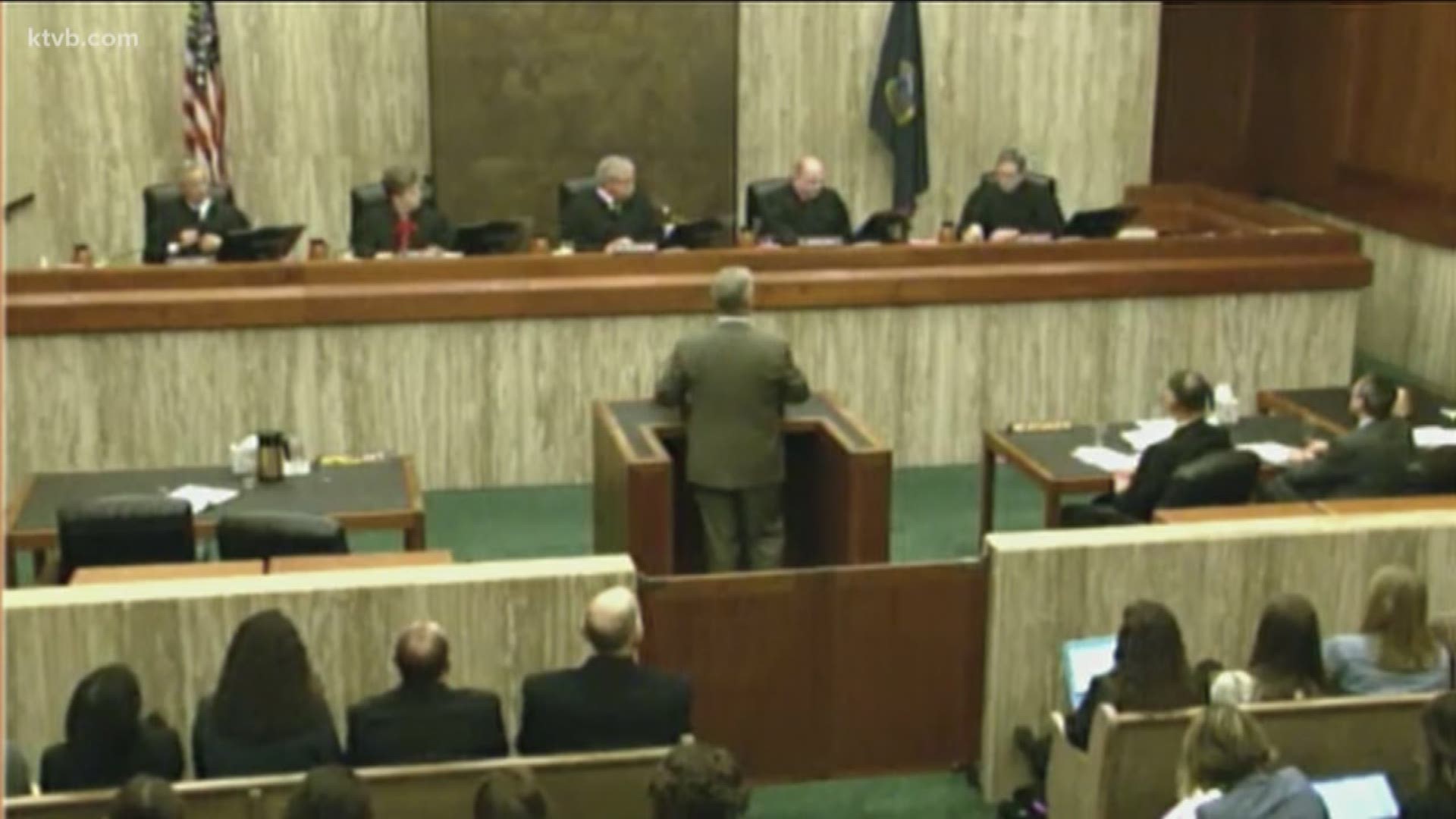BOISE, Idaho — The Idaho Supreme Court is deliberating after hearing arguments Tuesday about whether or not Idaho voters' decision to expand Medicaid coverage to 62,000 low-income Idahoans violates the state constitution.
Proposition 2, the initiative aimed at getting healthcare coverage for the people who currently fall into the state's healthcare gap - making too much money to qualify for Medicaid, but too little to qualify for subsidies - passed in November with 60 percent of the vote.
Under the new law, anyone under 65 who is not eligible for coverage under the state plan can get Medicaid if their income is 133 percent of the federal poverty level or below - up from 21 percent of the federal poverty level under Idaho's previous iteration of the policy.
Backers of the initiative hailed its passage, saying that expanding Medicaid will ultimately save the state money while providing help to those who cannot afford doctor visits or the medicines they need.
But after the proposition passed, conservative group Idaho Freedom Foundation filed a lawsuit against the Idaho Secretary of State Lawerence Denney, arguing the initiative was unconstitutional.
IFF attorney Bryan Smith argued Tuesday that Medicaid expansion handed over Idaho's lawmaking power to the federal government.
Smith says that because the initiative ties Idaho to the federal standard - 133 percent of the poverty level - the state could be forced to go along if federal lawmakers change that formula.
He contended that such a possible change - which could in theory see Idaho picking up a larger share of the bill - was not what the people of Idaho were backing when they voted to expand Medicaid.
"When they voted for that, they also understood that the government was going to pay 90 percent. That's what they understood," he said. "The federal government can change that, and if they change that, then the people just voted for something that becomes different."
The argument drew apparent skepticism from some of the justices, who pointed out that several state programs and benchmarks - including the minimum wage and highway funding - are already tied to federal standards.
Justice Gregory Moeller pressed Smith, questioning whether he considered any accord between Idaho and U.S. governments an inappropriate action.
"What you deem as a surrender of sovereignty, the attorney general's office treats as mere cooperation on a federal level," Moeller said. "Philosophically, is it possible for us to work with the government in any way without surrendering our sovereignty?"
Smith responded that the state has a responsibility to retain power to make its own laws.
"The federal government likes to seize power," Smith said. "Yes, we can work with them, but we have to do what we can do to protect, jealously, our lawmaking authority under our state constitution instead of what I call surrendering it."
Assistant Chief Deputy AG Brian Kane rejected the arguments from the Idaho Freedom Foundation, asking the justices to throw out their petition.
"There is simply no delegation to the federal government," Kane said. "This petition is without legal foundation because no cogent legal theory has been advanced, procedurally or substantively."
Kane also dismissed the idea that a change on the federal level would automatically trigger the same recalculation in the Gem State.
"You can't force states to make that change," he said. "The state of Idaho has consistently approached any change within Medicaid as requiring the state to opt in."
Ken McClure, lawyer who represented Idaho Medical Association and two women who would receive Medicaid under the expanded definition, told the justices the gap that existed before Proposition 2 passed left vulnerable Idahoans in limbo.
"There is no support for any kind of healthcare for those who are in that position. It creates the odd result of having virtually no place to go," he said. "That is why the people enacted Proposition 2, to accept the optional Medicaid program."
The Idaho Supreme Court called a recess and began their deliberations after about an hour of testimony. It's unclear when they will return with their decision.

